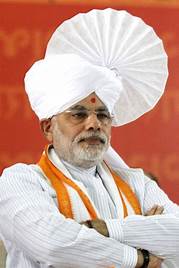Description
Narendra Modi is the current Prime Minister of India, having held the position since May 2014. He is a prominent leader of the Bharatiya Janata Party (BJP) and has played a significant role in shaping India's political landscape. Before becoming Prime Minister, Modi served as the Chief Minister of Gujarat from 2001 to 2014.
Key Aspects of Narendra Modi's Life and Career:
Early Life and Background:
- Narendra Damodardas Modi was born on September 17, 1950, in Vadnagar, a small town in the state of Gujarat, India.
- He comes from a humble background; his father was a tea seller, and Modi himself helped his father sell tea during his childhood.
- Modi became involved with the Rashtriya Swayamsevak Sangh (RSS), a Hindu nationalist organization, at a young age, which deeply influenced his political ideology.
Rise in Politics:
- Modi joined the Bharatiya Janata Party (BJP) in 1985. His organizational skills and leadership were quickly recognized, leading to his rise within the party ranks.
- In 2001, Modi was appointed as the Chief Minister of Gujarat, following a crisis in the state. He was later elected to the position and served until 2014.
Chief Minister of Gujarat:
- As Chief Minister, Modi focused on economic reforms and infrastructure development, promoting Gujarat as a model of rapid economic growth.
- However, his tenure was marred by the 2002 Gujarat riots, where communal violence resulted in the deaths of over 1,000 people, mostly Muslims. Modi’s government was accused of not doing enough to prevent the violence, leading to widespread criticism both in India and internationally.
Prime Minister of India:
- In 2014, Modi led the BJP to a historic victory in the general elections, securing a majority in the Lok Sabha (India's lower house of Parliament). He became the first Prime Minister to win a full majority without coalition support in three decades.
- His government has focused on economic reforms, digital initiatives, infrastructure development, and promoting a strong nationalist agenda.
- Modi’s flagship initiatives include “Make in India,” “Digital India,” “Swachh Bharat Abhiyan” (Clean India Mission), and “Ayushman Bharat” (a healthcare program).
Global Leadership:
- Modi has also emphasized improving India's global standing, strengthening ties with various countries, and playing a more assertive role in international forums.
- He has engaged in numerous diplomatic initiatives and has been recognized as a global leader by various international platforms.
Controversies and Criticism:
- Modi’s tenure has seen significant changes in India’s socio-political environment, with increased focus on Hindu nationalism, which has been both lauded and criticized.
- His government has faced criticism over issues such as the handling of the COVID-19 pandemic, demonetization in 2016, the introduction of the Goods and Services Tax (GST), and the controversial Citizenship Amendment Act (CAA).
2024 General Election:
- Modi continues to be a central figure in Indian politics, with his leadership style and policies expected to play a crucial role in the upcoming 2024 general elections.
Narendra Modi remains a polarizing figure in India, with a vast following and equally strong opposition. His impact on India’s political, economic, and social landscape is profound and continues to shape the country’s future trajectory.
